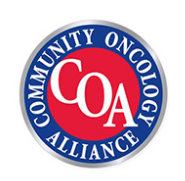
Targeted Therapies in Oncology
- June 1 2020
- Volume 9
- Issue 8
Community Practice Mergers and Acquisitions Rise Steeply Over 2 Years, COA Report Reveals

"Since 2008, 1748 community oncology clinics and/or practices have closed, been acquired by hospitals, undergone corporate mergers, or reported financial difficulties."
The 2020 Oncology Alliance (COA) Practice Impact Report, released on April 24 during the Community Oncology Conference, showed a significant increase in community oncology practices merging and/or being acquired by nonhospital practices or corporate entities. The report also touched on pandemic-related concerns for community practices.
Since 2008, 1748 community oncology clinics and/or practices have closed, been acquired by hospitals, undergone corporate mergers, or reported financial difficulties. Broken down, that includes 435 individual clinic treatment sites that closed; 348 practices, usually made up of multiple clinics, that reported financial difficulties from issues with bills and/or struggling to stay open; and 40 practices that sent their patients on Medicare elsewhere for chemotherapy.
Furthermore, 722 practices were acquired by a hospital or (less likely) entered into a contractual professional service agreement binding that practice to a hospital, and 203 merged with another community oncology practice and/or were acquired by a corporate entity.
On a state-by-state basis, the largest number of practice closures was in Florida, with 47; Texas, 44; and California and Michigan, 36 each; and Tennessee, 20.
The number of practices merging with or being acquired by another community oncology practice and/or corporate entity rose by 20.8% compared with the number in the 2018 COA Practice Impact Report. This year’s authors speculate that the change is because practices want protection from hospital merger pressures. These practices received financial incentives through the 340B Drug Discount Program and higher payments to hospitals for cancer care services, also the reason for a 9.7% increase in practices acquired by hospitals from 2018 to 2020.
“Over the last 12 years, an average of 9 practices per month have closed, been acquired by a hospital, or merged. These are troubling trends and dangerous for patients battling cancer,” Michael Diaz, MD, president of COA and director of patient advocacy at Florida Cancer Specialists & Research Institute, said in a statement.
According to the report, early data show that the pandemic will significantly affect practices that already report a dramatic decrease in treatments, visits, and new patients. Although policy changes and government support are helping these practices stay open, uncertainty remains over whether hospitals will use unrestricted bailouts to drive growth after the crisis by pressuring more community oncology practices into acquisitions.
The COA Practice Impact Report tracks changes in the landscape of community cancer care in the United States through public and private data sources. The community oncology trends from national and state data are covered in a 12-year period in the 2020 report, from January 2008 to April 2020. This is the eighth report published by COA.
Reference:
2020 Community Oncology Alliance Practice Impact Report. COA. April 24, 2020. Accessed April 28, 2020. https://bit.ly/3bo17SS






































